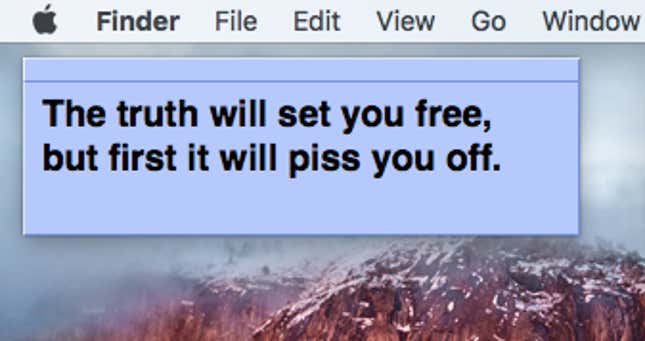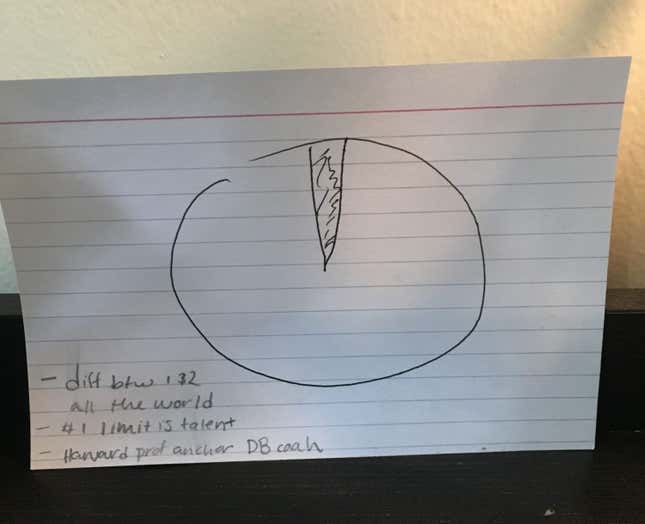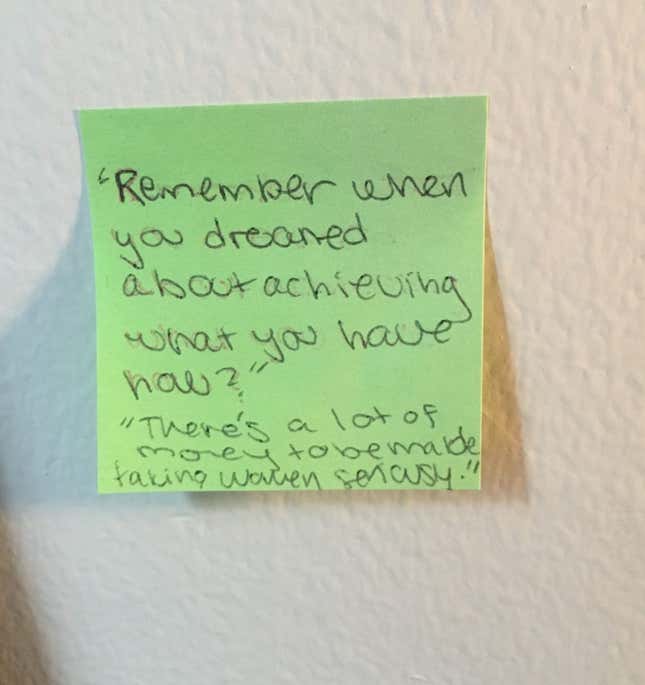What do we talk about when we talk about mentorship? Too often, we focus on mentorship with a capital M: how to find a Mentor, how to be a great Mentee, why every company should have a Mentorship program.
But the notion of gleaning all of your career insights from one highly successful, all-knowing “Mentor,” or pegging your professional development to a formal “Mentorship Program,” isn’t that useful.
Speaking with Quartz reporters and editors in a newsroom forum about mentorship on Aug. 24, Rebecca Blumenstein, deputy managing editor at the New York Times, explained how we miss out on countless mentorship moments when we convince ourselves that mentorship should come from a specific person, or program.
Prior to joining the Times in 2017, Blumenstein spent 22 years at the Wall Street Journal. There she held various roles, including page one editor, China bureau chief, international editor, and, eventually, deputy editor-in-chief. She remains the highest-ranking woman to have led the Journal’s news organization to date, and is widely recognized as one of the most effective mentors and sponsors in the journalism industry.
“One of the most impressive things about Rebecca is that she attracted the most personal loyalty among the newsroom of anybody I’ve ever seen in any news organization,” said Kevin Delaney, who worked with Blumenstein at the Journal before co-founding Quartz. “There are lots of people who stayed at the Journal years longer than we would’ve otherwise because she was so compelling.”
It’s an experience Li Yuan, now the Asia tech columnist for the Times, and a Journal alum, echoed on Twitter:
Flattering as these descriptions are, Blumenstein finds her status as a highly sought-after mentor somewhat ironic, given she’s never had a formal mentor herself:
“Often I think people can feel a bit lost in an organization and it’s really, really useful to have someone to go to,” Blumenstein says. But “I’ve never really had a mentor. I’ve certainly never had a female mentor. Most of my mentors, if I had them were men. And that worked pretty well, but it wasn’t like a meeting every week, or every two weeks, where they asked me, ‘How are you doing,’ or ‘What’s going on.’ It wasn’t that sort of thing. It was more like, at the right moments, I would get, you know, a word of wisdom, and I would be okay.”
Thinking of mentorship as an aggregation of moments, ideas, and insights—collected over time, from various people, and especially in moments of personal struggle—is far more accessible and comforting than feeling like you need to search for a single, perfect mentor.
It’s an approach I’ve personally embraced since joining the field of journalism. Worried I’d forget the nuggets of wisdom I picked up every week (whether from formal mentors, workplace friends, or people I’ve never met before), I began writing down their ideas and advice on Post-it notes and digital “Stickies.” I regularly refer to these notes for inspiration and motivation.
There’s the Gloria Steinem quote I pulled from her memoir, My Life on the Road, which got me through months of reporting on sexual predators, via the #MeToo Movement:

Then there’s the pie chart that Atlantic Media owner David Bradley once drew for me, when I was considering applying to law school. “The world is extremely big, your opportunities are limitless, and the shaded in slice is what law school will give you,” he told me, reflecting on his own experience earning a law degree. I keep the index card on my desk; it reminds me to keep things in perspective.

Also at my desk is a quote from Vox journalist Liz Plank, which she tweeted a year ago: “Remember when you dreamed about achieving what you have now?” I barely know Plank, but her words totally reframed how I think about success. Below Plank’s is a quote from Cindy Gallop, an entrepreneur I admire and have never met: “There’s a lot of money to be made taking women seriously.”

I’m blessed to be able to call a few people capital-M mentors. They check in on me regularly, advise me when I’m down, and congratulate me when I succeed. It’s lovely having them, but their guidance isn’t any more or less valuable than the single-line insights I regularly collect from people I’ll probably never know.
And that’s Blumenstein’s point: You don’t need a Mentor to be well-mentored. You just need to be attentive, and open-minded to what’s around you.
“I think mentorship can be just the right piece of advice, at the moment that you need it,” she said. “It goes way beyond a role model mentor, or a formal mentor program. I’ve always gotten those pieces of advice from scattered places, and they keep me going moving forward.”
Importantly, these pieces of advice don’t only come from your superiors. Often, your professional peers—or even people in lower-level roles than you—have even more to teach you, given that they’re more likely to understand your present concerns, experiences, and anxieties.
“In any organization, you know, there are certain people who volunteer to be mentors, and certain people who want to be mentored,” she says. “But supporting a productive work environment is everybody’s responsibility.”
She shared a simple mentoring strategy she’s used for years, which she picked up from Bryan Gruley, now a reporter at Bloomberg News. “He said that the most meaningful thing you can do for someone at work is to send an email when you don’t have to,” Blumenstein recalls.
“When someone accomplishes something and gets the kudos note from a boss, or the requisite email, that’s important. But when a colleague who doesn’t have to say something, sends a congratulatory email, or something like that, it’s really incredibly meaningful. If you do that, it comes back to you. It really does.”
